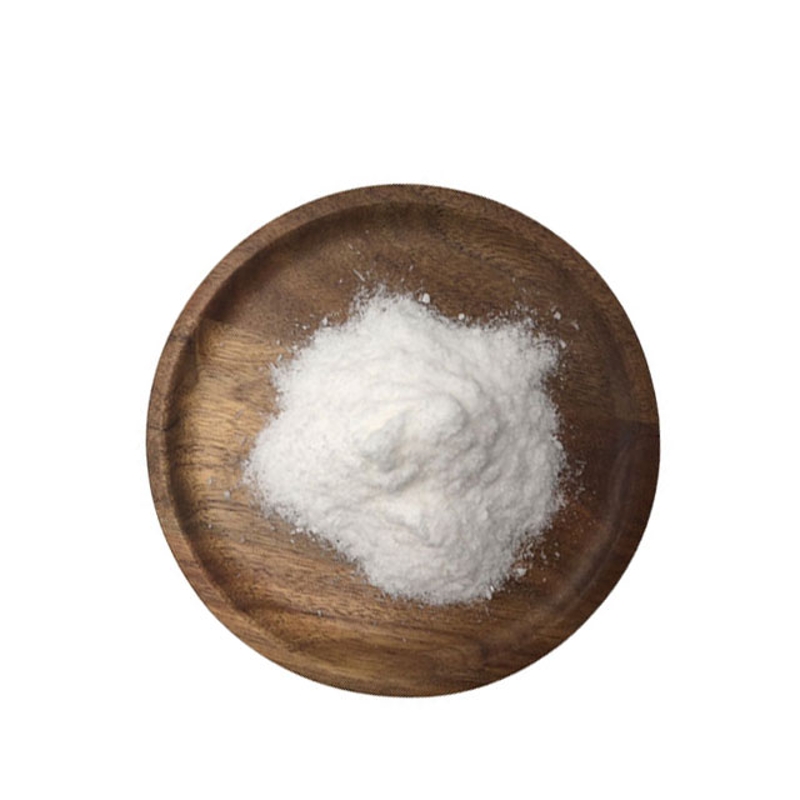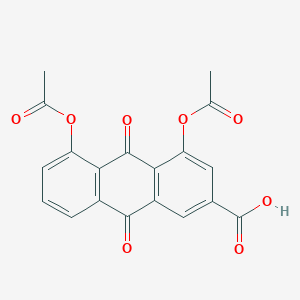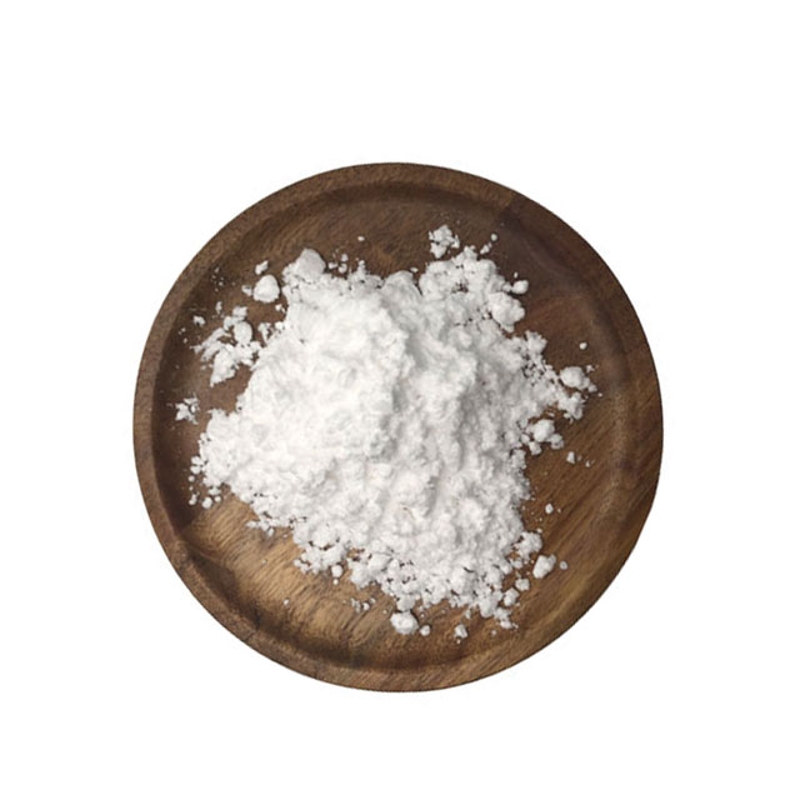Several articles focus on important research results in the field of atherosclerosis research!
-
Last Update: 2020-07-28
-
Source: Internet
-
Author: User
Search more information of high quality chemicals, good prices and reliable suppliers, visit
www.echemi.com
"This article has compiled a number of important research results to focus on recent advances in the field of atherosclerosis research to share with you! FILE Photo: Revealing the relationship between atherosclerosis and changes in heart structure function: A recent study found evidence of a link between calcium accumulation in coronary arteries (atherosclerosis) and changes in heart structure and function, even in individuals without heart failure and myocardial infarctionCoronary calcium accumulation or atherosclerosis is a strong predictor of coronary heart disease in the futureSo far there has been evidence that coronary heart disease, even without symptoms, interacts and develops with the development of cardiomyopathyBut there is still a lack of data on the association between coronary artery calcium ions and changes in heart structure and function based on echocardiogramResearchers at Boston University School of Medicine () assessed the association between coronary artery calcification and echocardiogram measurements in the heart study's leading participants (the average age of women)They observed higher coronary artery calcium deposits associated with higher left ventricular mass index and aortic root diameter, which were consistent with the potential adverse effects of changes in the size shape structure and function of the heartRevealthe relationship between aging and atherosclerosis: About % of the human genome does not have the function of encoding proteinsBut these non-coding regions of the genome are not simple "junk" sequencesRecently, a professor in the Department of Cardiovascular Medicine at Harvard University and others revealed the role of non-coding genes in the formation of atherosclerosisAtherosclerosis is a type of disease that blocks blood flow due to hardening of blood vessels and leads to heart diseaseIn the study, and colleagues used a preclinical atherosclerosis model to find a long non-coding () role in the onset of disease that may point the way for new therapies at the atherosclerosis, published in the journalThe researchers say we have found a new factor that controls the aging of the vascular wall, which is not a traditional gene or protein but part of a non-coding sequenceOur new findings on the importance of cholesterol and inflammation in the event of heart disease make it important to think carefully about how non-coding genes affect cardiovascular disease and whether new treatments can be developedIdentification of new inducers of atherosclerosis: In a recent study published in the international journal, scientists from Vanderbilt University and other institutions found new promoters that induce atherosclerosis; free radicals produced during oxidative stress and fatty acids on cell membranes react to higher reactive fatty aldehydes that modify proteins and promote cell or tissue damageAldehydes can modify so-called good cholesterol-high-density lipoproteins and promote atherosclerosis, while another type of aldehyde, called aldehydes, is produced at the same time but is not known to researchers who are currently playing a key roleThe researchers say that today's study found higher levels of grooming in the body of patients with familial hypercholesterolemia than in the control population, and the researchers identified targeted amino acids and modified modifications that reduce the ability to resist inflammation did not change the ability to pump extracholesterol cholesterol into macrophagesSmooth myoblast transformation in atherosclerosis prevents arterial plaques from breaking: Changing your identity to protect others sounds like a comic book "obligatory police officer" but a group of cells found in a new study from Stanford University School of Medicine in the United States did just that For these cells, the identity transition occurs in a disease called atherosclerosis The disease occurs when arteries are blocked by plaques that accumulate fat, cholesterol and molecular particles The researchers say we know that factors such as poor diet and lack of exercise can lead to atherosclerosis But from a molecular point of view, people don't know how the disease is progressing and don't know how to stop it He said the new study was a big step toward solving the problem Plaques grow within the tissue layer that forms the arteries rather than inside the blood vessels themselves, causing them to narrow Too many plaques tear tissue so that the accumulated mucus fills the inside of the blood vessels This causes blood clots that can cause arteries to block and often lead to heart attacks Scientists reveal the molecular mechanisms of atherosclerosis: In a recent study published in the international journal "" scientists from Vanderbilt University and Brigham and Women's Hospital in the United States have delved into the molecular mechanisms of atherosclerosis in humans Atherosclerosis is a disease atherosclerosis patient whose arteries are slow and developed due to plaque formation, and the arterial plaques in the body are formed mainly through the local proliferation of white blood cells and vascular smooth muscle cells ( ) in the walls of blood vessels and are accompanied by related changes in cell metabolism So far, researchers have been unable to conduct simultaneous studies of cell proliferation and metabolic changes in atherosclerosis plaques In this study, the researchers, Ph.D., et al used the first quantitative imaging technique called multiisotope imaging mass spectrometry ( ) to directly determine changes in cell division in atherosclerosis plaques and changes in cell glucose utilization at subcellular resolution FILE PHOTO: Uncovering the molecular mechanisms by which "bad cholesterol" enters the body's artery walls to trigger atherosclerosis: A recent study published in the international journal, scientists from the Southwest Medical Center, have developed a study that sheds light on the circular "bad cholesterol" that promotes plaque formation in the arteries, which narrows blood vessels and triggers heart attacks and strokes Because LDL cholesterol enters the arterial wall to drive atherosclerosis occurs or atesthetic atherapy can drive heart attack syllads and strokes to inhibit the process may help effectively reduce the risk of life hazards Cardiovascular disease is the leading cause of death among people worldwide, coronary artery disease and stroke account for more than one proportion of cardiovascular disease deaths in the United States For the first time in the study, researchers revealed how a protein called a type scavenger receptor transports particles into an arterial endothelial blood vessel, and they also found that a protein called cytokine (cytokine) is critical to this process Atherosclerosis enters the artery wall in the early stages of atherosclerosis, which attracts and is ingested by macrophages and is ingested into foam cells, which promotes inflammation and induces the formation of atherosclerosis plaques Expression of specific molecules in blood cells may help predict the risk of atherosclerosis in the body: A recent study published in the international journal scientists from Spain's National Cardiovascular Research Center found that the level of expression of molecules in blood cells may help predict the risk of atherosclerosis in individuals Atherosclerosis is a disease characterized by the accumulation of arterial wall lipids, but it is usually found after clinical events such as myocardial infarction or stroke; The origin of atherosclerosis and its progression into acute myocardial infarction and the effects of stroke-related immune response sons say that at present we do not clarify the relationship between lipid metabolism and the body's immune response Sub-journal: Nano-immunotherapy promises to treat atherosclerosis: In a new study, researchers from the United States, Denmark, the Netherlands and France report that the scale of nano-immunotherapy from mice to large rabbits and pig atherosclerosis models focuses on a solution they have implemented to overcome the challenges of production and evaluation The findings are published in the journal In this new study, researchers tested the large amount of particles produced by methods that produce large amounts of particles that are necessary for large-scale animal studies and imaging analysis to assess the effectiveness of treatment These enlarged particles showed anti-inflammatory effects in the blood vessels of the atherosclerosis model of rabbits and pigs, thereby reducing the increase in the walls of the blood vessels Specifically, the researchers integrated translational imaging readings into their work processes to analyze the behavior of nanoimmune agents in the body and to evaluate the therapeutic response in large animals Neutrophils exacerbate atherosclerosis by inducing the death of smooth muscle cells: Many chronic diseases are caused by immune response disorders In a new study, researchers from the University of Munich and other institutions in Germany found that neutrophils exacerbate atherosclerosis by inducing the death of smooth muscle cells, and that a custom peptide inhibits the process The findings were published in the journal The researchers studied the molecular mechanisms of chronic inflammatory diseases, including atherosclerosis These diseases are largely attributable to as-yet-unidentified congenital immune responses In the new study, he and his colleagues focused on the role of neutrophils, which form an important part of the innate immune system "Every inflammatory response leads to collateral damage because neutrophils also attack healthy cells, " he explains "They describe how neutrophils destroy tissue by initiating a class of previously unrecognized induced cell death.??? The team also developed a synthetic peptide that inhibits this harmful process """"""Heavy weight!" Antibodies that block phospholipid oxide are expected to prevent inflammation and atherosclerosis! In a new study, researchers at the University of California, San Diego, usa, found that they were able to block inflammation in mice using a natural antibody that binds to phospholipid oxide, or phospholipids that oxidize Phospholipids are molecular inflammations that occur on the surface of cells that cause them to oxidize Even mice eat high-fat foods, which are antibodies that protect them from arterial plaque formation, arteriosclerosis, and liver disease, which prolongs their lives For the first time in a life system, they have demonstrated the triggering of inflammation and leading to the formation of arterial plaques The results also suggest that the results of a new method to stop or reverse multiple inflammatory diseases are published in the journal The researchers say you develop inflammation no matter which part of you develops This does not mean that it is the culprit but it does play an important role Some of the molecules that make up the cell membrane of phospholipids are easily modified by reactive oxygen to form This event is particularly common in inflammatory diseases such as atherosclerosis, where plaques that block the arteries in atherosclerosis form Prior to this study, scientists were not able to control phospholipid oxidation in a way that allowed them to study the effects of phospholipid oxidation in inflammation and atherosclerosis The researchers used genetic engineering to create mouse sets with two specific properties: () they have genetic mutations that make them a good model for studying atherosclerosis; They fed the mice high-fat foods () More wonderful counts! Stay tuned!
This article is an English version of an article which is originally in the Chinese language on echemi.com and is provided for information purposes only.
This website makes no representation or warranty of any kind, either expressed or implied, as to the accuracy, completeness ownership or reliability of
the article or any translations thereof. If you have any concerns or complaints relating to the article, please send an email, providing a detailed
description of the concern or complaint, to
service@echemi.com. A staff member will contact you within 5 working days. Once verified, infringing content
will be removed immediately.







